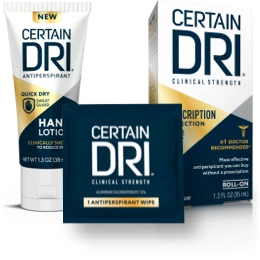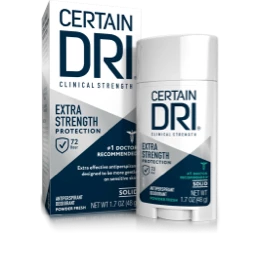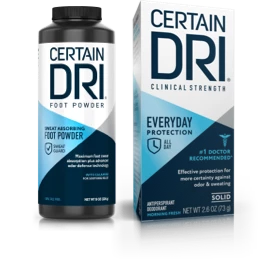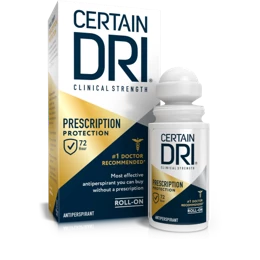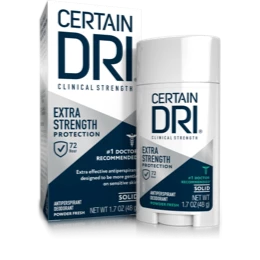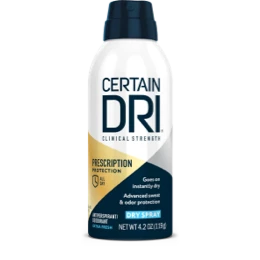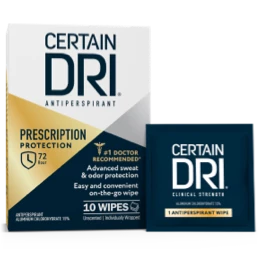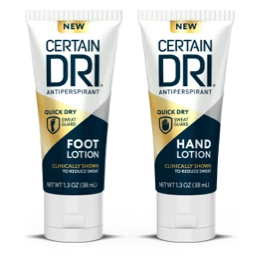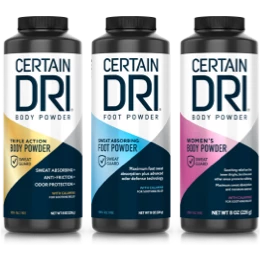What is Hyperhidrosis

Sweating is a necessary bodily function, but some people overdo it. People who suffer from axillary hyperhidrosis can’t control their body’s natural reaction to hot temperatures or stressful situations and start sweating profusely.
Sweating helps the body stay cool, and in most cases is perfectly natural. People sweat more in warm temperatures, when they exercise, or in response to situations that make them nervous, angry, embarrassed, or afraid. Excessive sweating occurs without such triggers. People who have hyperhidrosis sweat when the body does not need cooling. The uncontrollable sweating can lead to significant discomfort, both physical and emotional.
Many people who have hyperhidrosis sweat from one or two areas of the body. Most often, they sweat from their underarms (axillary hyperhidrosis), palms, feet or head. While the rest of the body remains dry, one or two areas may drip with sweat.
What causes hyperhidrosis?
Dermatologists continue to study what causes this condition and continue to work on improved treatments. If excessive sweating interferes with your life, you may want to see a dermatologist to learn about a variety of treatments that are available.
Your body has several million sweat glands distributed over it, the bulk of which are eccrine glands that secrete odorless, clear fluid that helps regulate body temperature through evaporative heat loss. Generally, hyperhidrosis involves overactive eccrine glands. The apocrine glands are the other type of sweat glands, which are found in the armpits and genital area. Apocrine glands produce a thick fluid that produces body odor when it comes in contact with bacteria on the skin’s surface.
Nerves activate both the eccrine and apocrine glands.
These nerves (from the autonomic nervous system) become active due to a variety of stimuli, including:
Heat
Hormones
Stress
Physical activity
or exercise
In patients with axillary hyperhidrosis, sweat glands (eccrine glands in particular) overreact to stimuli, producing more sweat than is needed. Hyperhidrosis often requires medical care.
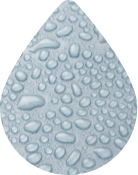
Who gets hyperhidrosis?
If you experience hyperhidrosis, it’s important to remember you are not alone. It is difficult to say how many people have excessive sweating because many people never see a doctor – some are too embarrassed, while others do not realize that this is a treatable medical condition.
Dermatologists
estimate that
5
%
of people in the United States have excessive sweating.
Some people are predisposed to or more likely to get hyperhidrosis.
Researchers have learned that most people have one of the following:
Family member who sweats excessively
Medical condition that causes the sweating
Medicine or food supplement that they take, which can cause excessive sweating
3
%
of world
population
population
This condition affects millions of people around the world (approximately 3 percent of the population). People of all races get hyperhidrosis, and the excessive sweating can begin at any age. For many people, it begins when they are a child or teen. Dermatologists believe that many more children and adolescents have this condition than are medically diagnosed, but because of lack of awareness and understanding that there are treatments for the condition, more than half of these people are never diagnosed or treated for their symptoms.
Axillary hyperhidrosis treatment
Treatment depends on the type of hyperhidrosis and where the excessive sweating occurs on the body. Many people control their hyperhidrosis by combining treatment with tips for managing. Your doctor may also consider your overall health and other factors.
Antiperspirants will likely be the first treatment that a dermatologist recommends. When applied as directed, an antiperspirant can be an effective solution for axillary hyperhidrosis. Your dermatologist may recommend a regular or clinical-strength OTC antiperspirant. Some people may need a stronger antiperspirant and receive a prescription for one. Hyperhidrosis is diagnosed by a dermatologist or doctor. OTC antiperspirants are not indicated to treat hyperhidrosis.
Certain Dri is a proud supporter of the International Hyperhidrosis Society. Learn more about hyperhidrosis treatments at sweathelp.org.
References:
https://my.clevelandclinic.org/services/heart/disorders/hyperhidrosis
https://www.aad.org/public/diseases/dry-sweaty-skin/hyperhidrosis
https://www.nlm.nih.gov/medlineplus/ency/article/007259.htm
https://www.aad.org/public/diseases/dry-sweaty-skin/hyperhidrosis
https://my.clevelandclinic.org/services/heart/disorders/hyperhidrosis

